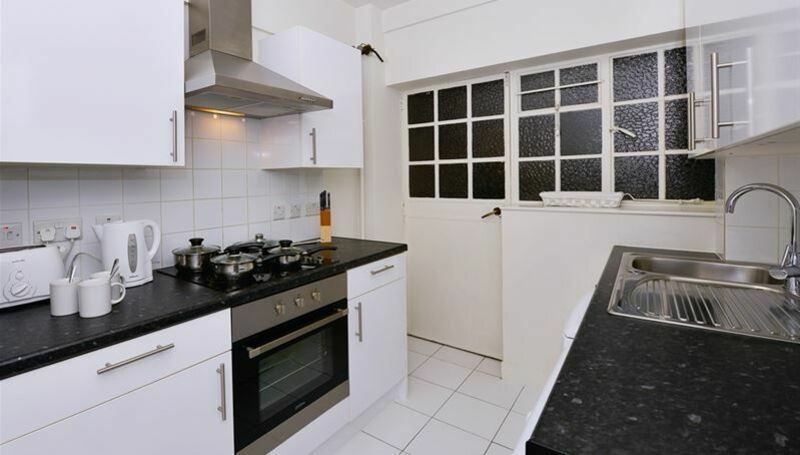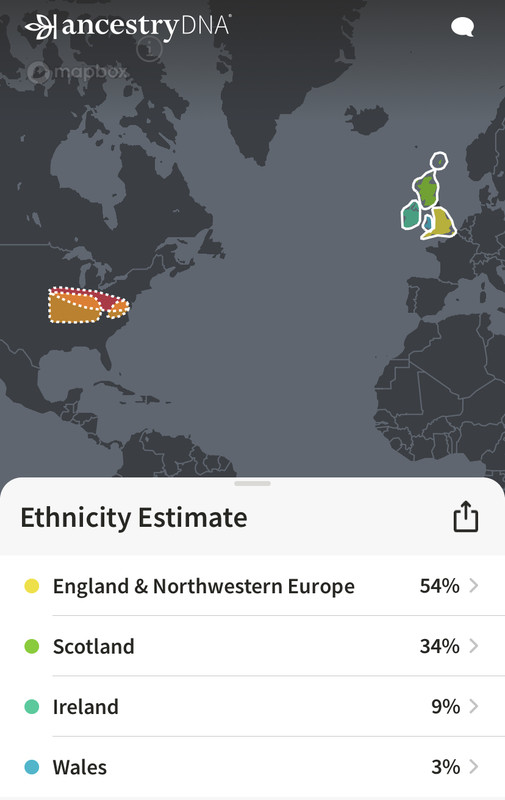The DU Lounge
Related: Culture Forums, Support ForumsDreaming of Europe? Here's How to Move to the UK
Yes, the healthcare is everything you dreamed.https://www.thrillist.com/travel/nation/how-to-move-to-the-uk-expat-guide

On November 8, 2016—as much of the country stood aghast—I got one piece of very good news: My fiancé visa to relocate to the UK had been approved, stamped, and delivered on the same day Donald Trump was elected president. I packed three suitcases and moved a month later, becoming an official resident of Britain by the time Trump was sworn into office. Not everyone is so lucky to fall in love with a British person, a life event that gifted me the ability to navigate a challenging visa system and earn the right to live in London. But if London is calling you too, it’s still possible to make that transition across the pond, and you needn’t be living a whimsical romcom to make it happen. The UK—England, Wales, Northern Ireland and Scotland—is a relatively welcoming place, with many ideal places to live, be it bustling London, Manchester, or Edinburgh, or smaller towns like Margate and Brighton (yes, charming cottages like in The Holiday actually do exist). It’s a place of humming cities and rolling countrysides that feel stuck in a different era, of moss-covered isles and ancient pubs. And whether you’re a metropolitan go-getter or prefer a slower pace of life, there’s a place for you. Moving here will take some time and effort. Some Americans spend years in visa limbo. But it’s worth the climb. Here are some things to consider when planning to relocate to the UK.

Navigating the UK visa system
The UK immigration system is complicated, though it could become less so when the country leaves the EU and adopts a points-based immigration system in January. For now, though, the options are dependent on your finances, marriage status, and job situation. (Without a visa, Americans can currently stay in the UK for up to six months within a one-year period, but cannot work or look for work while visiting.) Many Americans come to the UK for work using a Tier 2 visa. They’re either transferred by a company with UK offices or find a job with a British company willing to sponsor them. Sponsored jobs are only available in fields listed on the shortage occupation list, so you may be better off pursuing one of the investor, business development, and talent visas. Start-up visas are given to those who want to launch a business in the UK and have sponsorship from a business or university. Those who want to start a business in the UK without the hassle of a sponsor can apply for the Innovator visa, which requires at least £50,000 in investment funds.
The Global Talent visa is available for those who are a leader or potential leader in academia or research, arts and culture, or digital technology. The latter lets you work as a freelancer in a variety of fields and doesn’t require a specific investment of cash. Another option is to apply to grad school in the UK and come over on a Student visa, which many Americans do even if they aren’t really in it for the degree. It’s fairly easy to get accepted into a program since the universities thrive on higher international student fees, and depending on the length of the course you can stay for up to five years. The fees to apply for a Student visa are also much lower than the applications for the other types of visas. Anyone applying for a visa will have to pay a National Health Service surcharge along with the application fee. As of October 2020, this costs £624 (about $820). Totally worth it.

Yes, the health system is as great as you dreamed
Established in 1948, the NHS is a tried and true miracle, especially for Americans used to endlessly dealing with weird health-insurance charges. It’s a simple system, and all citizens and visa-holders are entitled to use it. Once you have an official home address in the UK, you sign up with your local GP (general practice). There are no fees or insurance cards: you simply book an appointment and show up. The GP is the first stop for any issue, and your GP will then refer you through the NHS to see a specialist if needed. Prescriptions have a flat fee of £9.15 (birth control is free), and most prescription requests can be done over the phone to your GP. There are often complaints of long waiting times to see specialists or get advanced treatment, but overall the NHS is efficient and easy to use. There are private doctors who can be seen with private health insurance, but unless you have a serious condition the NHS is usually the way to go. The best part about the NHS is that you don’t have to second-guess a trip to the doctor and you’ll suddenly find yourself dealing with all those tiny health issues you ignored in America to avoid paying your deductible.
snip
genxlib
(6,102 posts)For November 4th...just in case.
I would love to live in England. Spent a year there in college and would move there in a heartbeat. Especially London although that might take a better salary to make it work.
I actually have some potential since my career is on that shortage list and my company has offices there.
Thanks!
Celerity
(54,005 posts)Kensington, has an average letting cost of close to 5000 usd per month at current FOREX rates (around 1100 US per week X 52 weeks divided by 12).
Now, South Kensington is NOT the typical neighbourhood, it is very posh, but be prepared to pay 2000 to 3000 USD equivalent per month for a fairly quotidian, but decent sized (certainly not large in an American sense) flat in a relatively central (outer Zone 1) neighbourhood. Of course, deals can be found, but so can lettings that will make your jaw drop when you see the pounds per week rate.
Loot is still a place to at least dip a toe in the lettings waters.
https://loot.com/
this flat is around 4300 usd per month (South Kensington, just to show you) and is nothing remotely special
I actually know this exact area for the flat, as it is VERY (as in a 4 or 5 minute walk, max) close to where I grew up
https://loot.com/property/residential/flats-apartments/close-to-south-kensington-station-4985856

Fulham Road, London, England, London, SW3 6SH, United Kingdom
Description
This two bedroom apartment is situated in the heart of Chelsea. Neutrally decorated, available furnished or unfurnished and benefiting from communal gardens, lift and an onsite building manager. This apartment feautres one modern bathroom, fully equipped kitchen, spacious reception area, one double bedroom and second single bedroom. Moments walk from South Kensington tube station and Brompton Road.






Buckeye_Democrat
(15,511 posts)... of only a few centuries (LOL), if Trump steals this election somehow.

Thanks for the information!!
dawg day
(7,947 posts)No Isle of Man?
Buckeye_Democrat
(15,511 posts)My ancestors from all branches were here early enough that it's usually a struggle to know how they arrived (usually in early PA records with some in VA).
Most of the distant cousins over there are near London, I guess.
SergeStorms
(20,200 posts)I'd love to live out my days in England. I certainly wouldn't need anything as posh as Kensington or Chelsea. Living within 50 miles of London would be fine for me, or along the western coast.
dawg day
(7,947 posts)are very lovely.
Celerity
(54,005 posts)choooooooooooooooons ![]()
![]()
![]()
great liquid drum n' bass and gorgeous scenery/optics
Sub Focus and Wilkinson performing at Corfe Castle to celebrate the release of their 11-track collaborative album ‘Portals'.
‘Portals’ is an 11-track collaborative album that sees the pair take their drum ‘n’ bass sound in a more experimental direction.
It was recorded during a month long stint at Peter Gabriel’s Real World Studios, and features hit singles ‘Just Hold On’, ‘Illuminate’ and ‘Air I Breathe’ on the tracklist.
Speaking about the location for Wednesday’s stream, Sub Focus and Wilkinson said: “The cinematic and expansive backdrop felt like the perfect physical representation of the album."
dawg day
(7,947 posts)What a great fort that is, and the view!
Celerity
(54,005 posts)This category is closed for new applicants.
If you are already have permission to stay in the UK as a retired person of independent means, you can apply to extend your stay or settle here. The maximum period you can extend in this category for is 5 years.
To be able to extend your permission to stay, you must:
currently have permission to stay as a retired person of independent means
have a minimum disposable income of £25,000 a year under your control in the UK
be willing and able to maintain yourself and any dependants indefinitely in the UK entirely from your own resources and without working or any help from public funds
demonstrate a close connection with the UK
not have already spent 5 years in the UK in this category
1. What is meant by income?
This must be actual income. It is not enough to show a capital sum of several hundred thousand pounds and say it will produce £25,000 a year in interest. You must:
be able to bring into the UK not less than £25,000, net of any overseas tax
be able to use the money freely; nobody else should have a controlling interest in it
be able to freely transfer all the income to the UK and convert it to sterling. If we have any doubt about your ability to transfer the money to the UK, we can ask for evidence of this (such as a letter from the bank or authorities concerned)
Income that belongs to your husband, wife or civil partner, or to both of you jointly, may be counted as under your own control, as long as both of you are applying at the same time.
2. What is a close connection with the UK?
The 2 usual connections are:
close relatives (such as parents, children, brothers or sisters) already settled here
long, relatively recent periods of previous residence here
These factors may be taken into account as part of a close connection (although they do not show a close connection on their own):
longstanding ownership of substantial property in the UK
long periods of employment by the government of the UK or a British overseas territory
employment with a UK company involving frequent business trips to this country
past service to the UK resulting in the establishment of close contacts with this country
letters of support from eminent British citizens
British status that is not full British citizenship (such as British subject status, British overseas citizenship, British overseas territories citizenship, or British protected person status) is not considered a close connection with the UK.
3. Do my dependants have to be over 60 years old as well?
They do not have to be over 60 years old but they must not work in the UK.
4. Can I work?
You must not be employed in any capacity or take an active interest in the running of any business in the UK or any other country. You can do a limited amount of voluntary charity work if it is unpaid and part-time.
5. Can I keep my home abroad?
You can keep your home abroad, but your main home must be in the UK. You must not keep a home outside the UK as your main residence and spend only short periods of time in the UK. You should confirm your intention either verbally or in writing. We may carry out further checks if you spend significant periods of time abroad while you have permission to stay in the UK as a retired person of independent means.
6. How long will I be allowed to stay in the UK?
Permission to stay in the UK is normally granted for 5 years. After that time, you can apply for permission to settle in the UK permanently (known as ‘indefinite leave to remain’). You will need to have met the requirements of this immigration category throughout the whole 5 years.
7. How do I apply?
Find out more about fees, how to pay and the documents required, in the guidance notes on the Application to extend stay in the UK: form FLR(IR) page or the Application to settle in the UK: form SET(BUS) page.
SergeStorms
(20,200 posts)"This category is closed for new applicants". The story of my life. Always a day late and a dollar short. ![]()
msongs
(73,239 posts)DFW
(59,877 posts)The easy part is looking at all the positive parts, and saying, "wow, who wouldn't want THAT?"
That is also the best way to set yourself up for, "man, how come nobody told me about THAT crap?" Europeans complain about aspects of their lives as much as we do, just not always about the same things.
To make it work, you have to several things, NONE of which are optional.
1. Know the ropes and the bureaucracy of where you're going. It's different, it's confusing and it's often contradictory and unfair.
2. Know the local customs of where you're going. When and where you stand in line, when and where you barge in front. When you can wear what and where without offending people. What's funny and what's uncouth. Fit in from day one. Show them you respect that it's THEIR country, and YOU'RE the guest. If you don't have or acquire local friends, you're in the wrong place.
3. Where we have one rule for something, count on European countries having ten. Denmark almost declined to join the EU when the EU Commission said Danish apples were too small to be allowed to be sold as "apples," and the Danes would have to call their apples something else. I am not making this up. Only when the EU Commission relented, and let Danish apples be called apples, did they join.
4. If English isn't the local language, LEARN THE LOCAL LANGUAGE. You don't have to be a university professor in local literature, but you DO need to be fully conversational. "Ein Bier, bitte" in Germany, or "du vin rouge, s'il vous plaît" in France, or "un vino bianco, per favore" in Italy won't cut it. If you move to one of "those" countries where "everybody knows English," such as the Netherlands or one of the three Scandinavian countries, OK, yes, they do. It's required in school from first grade through high school. But they use their own language among themselves, and if you don't know it, you'll forever be an outsider, and the loneliness will crush you eventually.
5. Know the money situation: taxes (all of them!), work, retirement, health insurance. Don't bother with welfare. If you need it, they don't want you. Period. Ask an accountant--a LOCAL one--what you can expect to pay in taxes on your expected income, what you'll have left over, what you'll need to live on where you plan to live, and what you should expect to pay in rent (or for a house if you are in that kind of income bracket).
5. Leave the bitching to the locals (they are better at it anyhow). There will be some things that are tolerated that are not tolerated in the States. Theft, especially unarmed theft, is rarely treated as a crime, and local police consider it an annyoance if you bother them about it. Pollution is sometimes strictly controlled, sometimes not at all. Never speak to someone smoking in a no-smoking zone. Or, the modern-day version, never bother someone not wearing a mask where they should wear it. Depending on whom you remind, it can get you anything from a polite apology to being beaten up (sound familiar?). There will be plenty of things to bitch and moan about. The French, in particular, will trash their own country verbally with no mercy. Just don't YOU try to agree with them. Among the French, it's a national pastime. On the other hand, if a foreigner trashes their beloved French paradise on earth, be prepared for a swift, "well, who asked you to come here in the first place?"
The only two countries where the locals do relatively little complaining are two countries which are most NOT interested in having more people come live there: Switzerland and Norway--not coincidentally the two major countries in Western Europe that never joined the EU. You CAN move there, too, but bring language skills and, preferably, a LOT of money. A medium sized café mocha at Starbucks in Zürich can run you $9, and a pound of cherries in Bergen can run you $11. A modest lunch for two in Geneva is easily $70. Not the low-rent district.
OK, NOW you can start contemplating the move. Yes, there's the architecture, the culture, the food, the proximity, the diverse people, and the history. Just know what you'll have to bring to the table in order to enjoy it all.
I fell in love with and married one of the (very) friendly natives here, and lucked out job-wise (knowing 9 European languages didn't hurt my assimilation or my job security), with a paycheck to match the needs of living where we settled (Düsseldorf area, though outside of town). Ergo, when it came time for me to request resident status, I had a lot of factors going for me. Not everyone will. Know the bad. Overcome it to the extent you can. THEN you get to enjoy the good.
dawg day
(7,947 posts)living there is vastly different than visiting.
And how did you learn nibe languages???
DFW
(59,877 posts)Our Latin teacher gave some of the class that wanted to (I wanted to) some informal classes in Italian on the side.
Then I got the offer to live and go to school in Spain, but in a part of Spain where Spanish is not the main language. School was in Spanish (Franco era), but life was lived in Catalan, so I learned that. When I got back to the States, I started with Russian in my last year of high school, because I had always though it sounded cool, and I LOVED their folk music. In college, I even joined a balalaika orchestra, my college being the only one in the USA that HAD a balalaika orchestra at the time.
On the boat to Spain and back, I had met some people from Sweden. I visited them in Sweden after high school graduation, felt like an idiot. They all knew English, and I knew no Swedish at all. So, when I entered college, I enrolled in a Swedish course, and found it surprisingly easy to learn. "I shall go home now" = "Jag skall gå hem nu." Etc. It's pretty easy if someone will explain the ropes to you.
My then-girlfriend had lived in Germany for five years, spoke it fluently. She and I made a pact--she would start studying Spanish if I would start studying German. OK, deal. To me, German was just fucked-up Swedish anyway. She graduated to finer pastures (entered Yale--fancier class of boyfriend, I guess) and left me, but in the meantime, a returning former student of my college came back from West Berlin and said it was one of the coolest towns in Europe. He had spent 2 years avoiding Vietnam by spying on the Soviet Air Force, had some hilarious stories. I went for a visit, and he was right, so I kept up my German, intended to spend the summer of 1974 there playing music in the cabarets. I did, and met my future wife there in one of them.
So, I was up to English, French, Spanish, Catalan, Italian, Swedish, German and Russian.
In 1979, I had played in a German folk festival and met some musicians from the Netherlands. I kept in touch with the fiddle player of one of them, and he introduced me to another guy in Holland who knew bluegrass banjo. We formed "The Holland-America Line" and played gigs in Germany, Holland and the USA until my top brass said, look, do you want to be James Bond or James Taylor? I reluctantly opted for Bond, and had to stop touring in my spare time. But I kept up with my Dutch contact, and made some serious work contacts there to the point where it made sense for me to start learning Dutch. After German and Swedish, it was no big deal, anyhow. I eventually established a permanent office there, and absolutely love the people there I work with. I can get along pretty well in Schwyzerdüütsch, too (Swiss German) which is so different from normal German that programs from Switzerland on German TV have subtitles, because no one can understand them.
In the meantime, I know smatterings of Croatian, Polish, Turkish, Japanese, and Tagalog but not enough to say I can carry on a coherent conversation in them. I know a few words in other languages such as Hungarian, Mandarin and Kurdish, but only enough to raise a smile, not enough to do much else. But raising a smile is often the difference between being just another stupid, arrogant American and one who cares enough to make people realize I am not one of those Amricans who thinks we are the only people on this earth.
ailsagirl
(24,287 posts)Don't think I haven't considered it!!
Celerity
(54,005 posts)ailsagirl
(24,287 posts)I lived on Vancouver Island, since I'd never lived on an island before I couldn't resist.
The pace was much slower than California's but I found myself missing the hustle & bustle of the Bay Area-- so I came back.
I remember reading awhile back that there is a 15 year waiting period for people to become Canadian citizens-- wow. I was lucky, since my parents were born and raised Canadians. ![]()
dawg day
(7,947 posts)and the geography is so epic.
Thyla
(791 posts)It would seem my European adventure is nearing and end. Just when is hard to say given the state of the world right now, probably in around 18 months if possible, but the wife and I are actively discussing our future and doing online searches about what is available and where.
We are both going to use the time in between now and then to study online and up our skill set as the plan is to change up our whole lifestyle to be more self sufficient.
